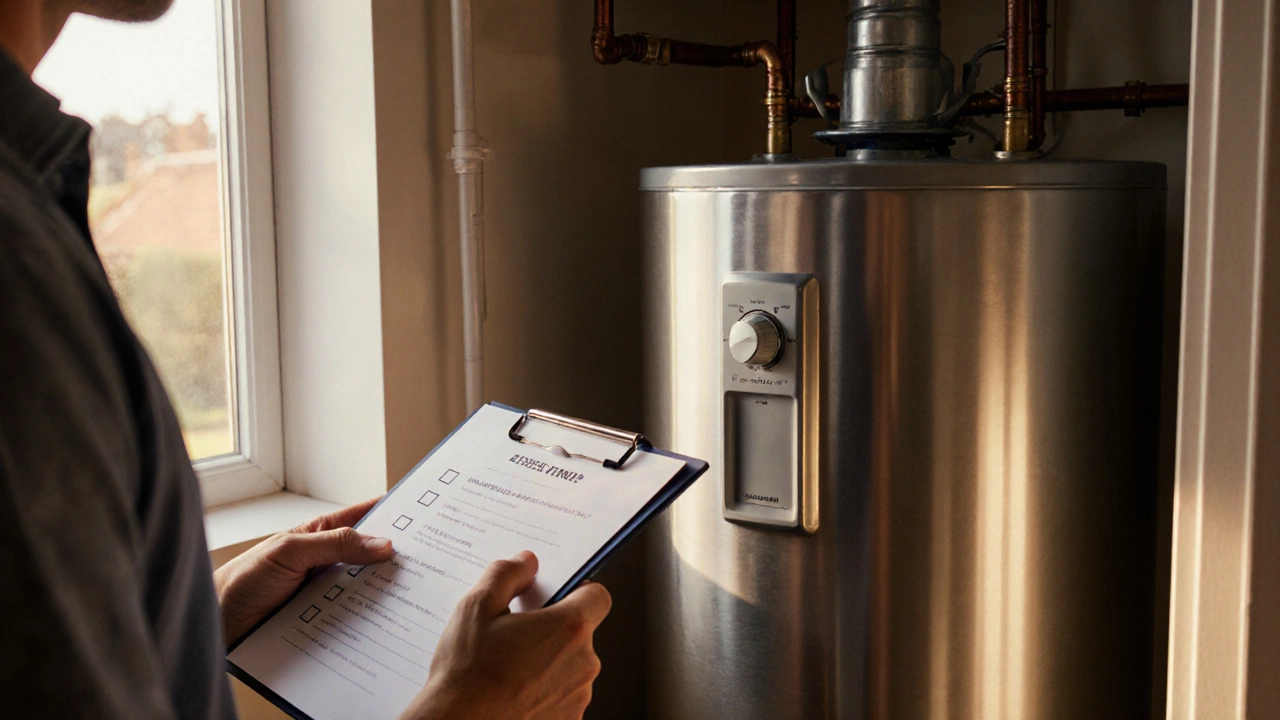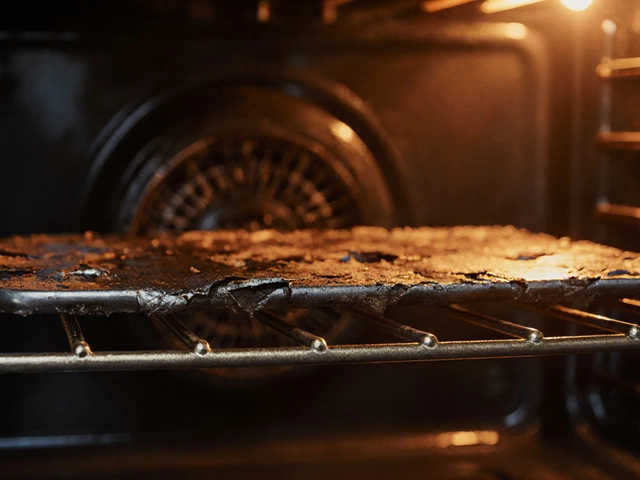The Efficiency Limits of a Heat Pump: Understanding the Temperature Thresholds
February 13 2025Water Heater Service: What It Means and Why It Matters
When dealing with water heater service, the routine inspection, repair, and upkeep of devices that supply hot water to homes and businesses. Also known as water heater maintenance, it ensures safety, efficiency, and comfort. A well‑performed service can prevent leaks, improve energy bills, and extend the lifespan of your hot water heater, the appliance that stores and heats water for showers, taps, and appliances. In many households the hot water system works alongside a boiler, a central heating unit that may also provide hot water through a combi or system setup, making coordinated service essential. Common tasks include water heater flushing, the process of clearing sediment from the tank to improve heating efficiency and checking for corrosion, as well as planning for water heater replacement, the eventual swap of an aging unit with a newer, more efficient model. Understanding these elements helps you decide when a simple fix will do and when to call in a certified engineer.
Key Areas Covered by Professional Service
First, a qualified technician will inspect the pressure relief valve, which releases excess pressure to avoid tank rupture. A faulty valve often triggers leaks or strange noises. Next, they test the thermostat and heating elements; if either is out of range, the heater may not reach the desired temperature, causing cold showers. The anode rod, a sacrificial metal piece, is examined for wear—replacing it can add years to the tank’s life. Finally, the service includes cleaning the burner or ignition system, which directly influences fuel consumption. These steps illustrate the semantic triple: water heater service encompasses inspection, cleaning, and component replacement. By completing them, you reduce the risk of sudden failure and keep energy use low.
Another major component is the interaction with the building’s plumbing layout. A well‑designed system avoids cross‑contamination between cold and hot lines and ensures proper flow rates. If the hot water heater is fed by a gas boiler, the gas pressure must be checked for stability; low pressure can cause the burner to ignite erratically, leading to irregular heating. When the hot water unit is electric, the circuit breaker and wiring are examined for signs of overheating. This relationship—boiler pressure influences water heater performance—highlights why coordinated service matters for multi‑system homes.
Maintenance also tackles sediment buildup, a silent efficiency killer. Over time, minerals settle at the tank’s bottom, insulating the heating element and forcing the heater to work harder. Flushing removes this layer, restoring heat transfer rates. A typical DIY flush involves shutting off water and power, draining the tank, and running fresh water through until it runs clear. However, a professional service adds a pressure test to verify that the tank’s internal lining remains intact after the flush, preventing future leaks. This illustrates the triple: water heater flushing reduces energy loss and extends tank life.
When it comes to replacement, several factors dictate the right choice. Age is a primary indicator—most models last 8‑12 years before efficiency drops sharply. Newer units boast higher ENERGY STAR ratings, which can cut heating bills by up to 30 %. The size of the tank should match household demand; an undersized heater leads to frequent reheating cycles, while an oversized one wastes standby heat. Additionally, the decision between a traditional tank and a tankless (on‑demand) system hinges on usage patterns and space constraints. These considerations form the triple: water heater replacement depends on age, efficiency rating, and capacity needs.
Safety checks are non‑negotiable. A cracked tank can explode under pressure, while a malfunctioning vent can release carbon monoxide. Technicians use combustion analyzers to ensure that gas‑fired heaters burn cleanly, keeping CO levels in check. For electric units, insulation resistance testing confirms that there are no hidden shorts. By linking service with safety testing, homeowners gain peace of mind and compliance with local building codes.
Cost-wise, a standard service visit in Bedford typically runs between £80‑£120, covering labor and basic parts. If you need a part replacement—like a new thermostat or anode rod—the price rises modestly. Full replacements range from £900 to £1,500 depending on brand and capacity. Many providers offer maintenance contracts that spread the expense over the year and include priority emergency response, which can be a smart financial move for busy families.
Beyond the technical side, regular service supports environmental goals. Efficient heaters emit less greenhouse gas and consume less electricity, aligning with the UK’s net‑zero targets. Choosing a high‑efficiency model during replacement can qualify you for government rebates, further offsetting the upfront cost. This ties the concepts of service, efficiency, and environmental impact together in a clear, actionable way.
Homeowners often wonder whether they can handle minor issues themselves. Simple tasks like resetting a thermostat, checking the pilot light, or performing a basic flush are within most DIY skill sets, provided the power or gas is safely shut off first. However, anything involving gas lines, electrical components, or pressure testing should be left to a Gas Safe registered engineer. Attempting these without proper certification can void warranties and jeopardize safety.
To sum up, a comprehensive water heater service touches on inspection, cleaning, component replacement, safety testing, and strategic planning for future upgrades. By keeping these elements in mind, you’ll know when a quick fix will suffice and when it’s time to schedule a full replacement. Below you’ll find a curated collection of articles that dive deeper into each of these topics—ranging from troubleshooting a non‑heating unit to comparing top water heater brands for 2025. Armed with this knowledge, you’ll be able to keep your hot water flowing smoothly and affordably.
 21 Oct
21 Oct
Essential Water Heater Maintenance Checklist to Prevent Costly Repairs
Learn the essential water heater maintenance tasks, how often to do them, and when to call a pro. Extend lifespan, cut energy bills, and avoid unexpected leaks.
Read More...



